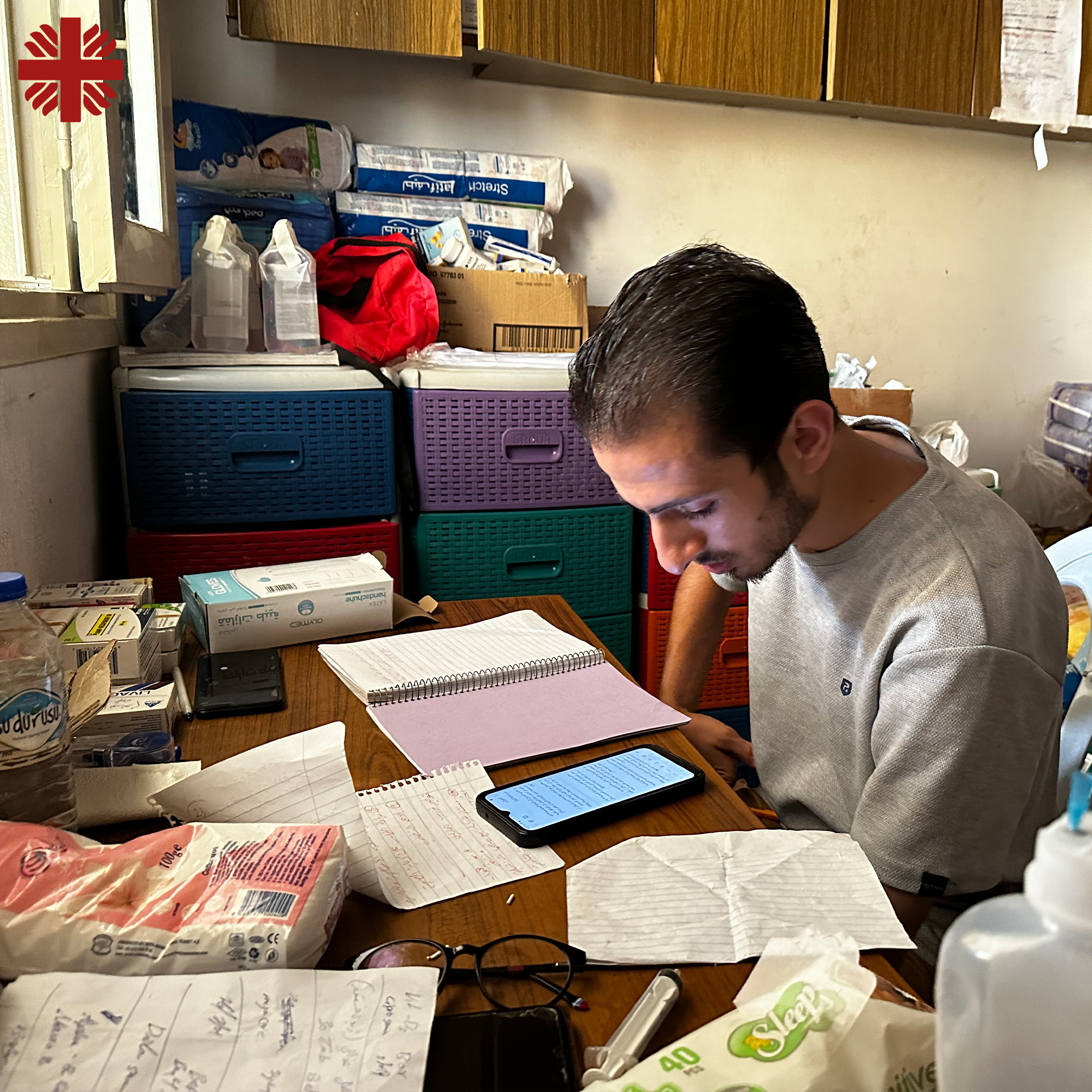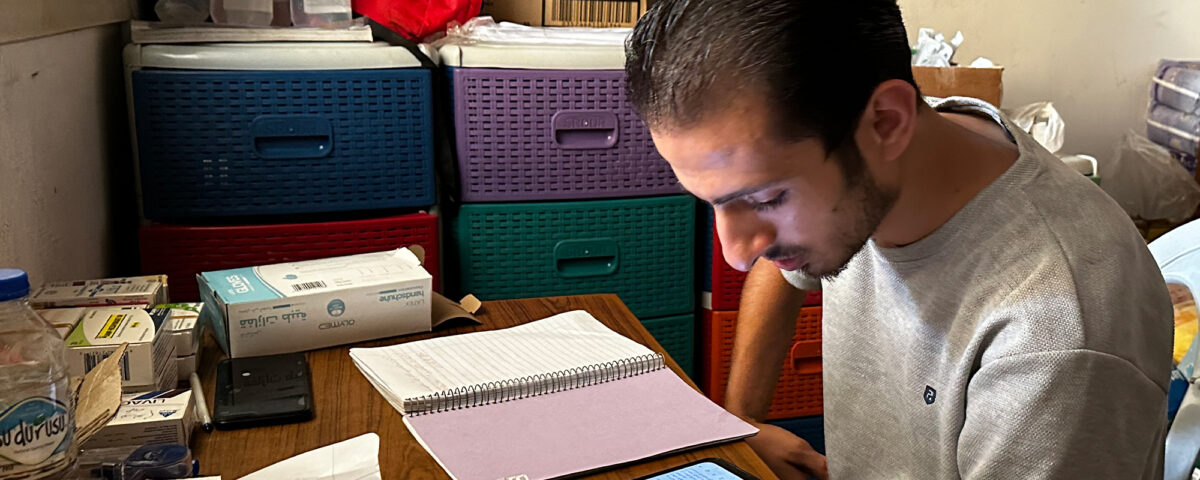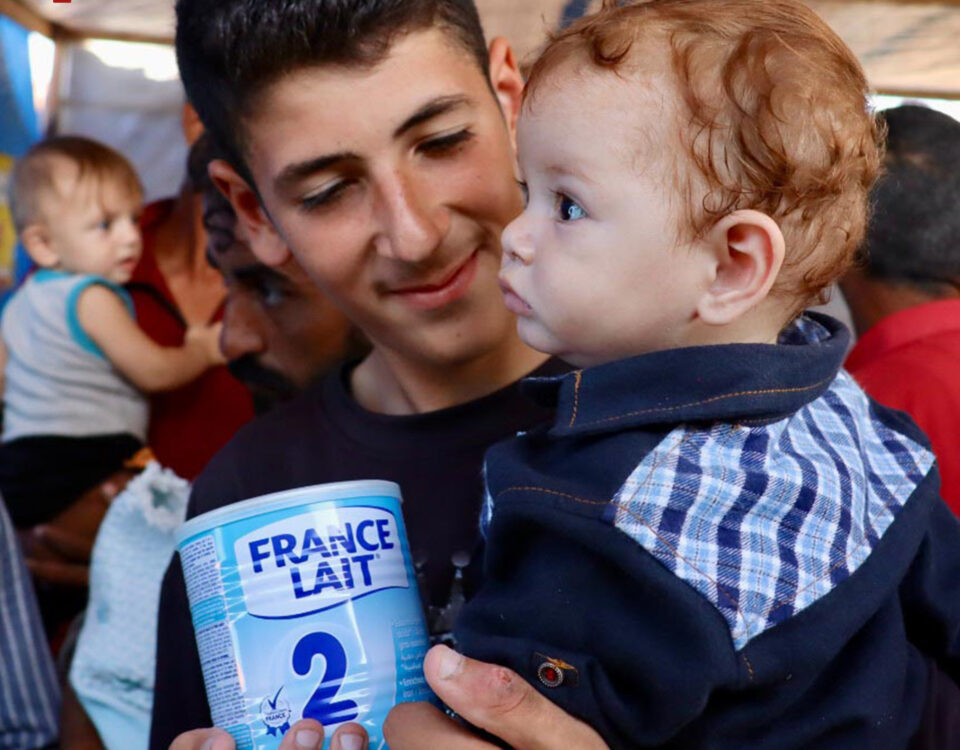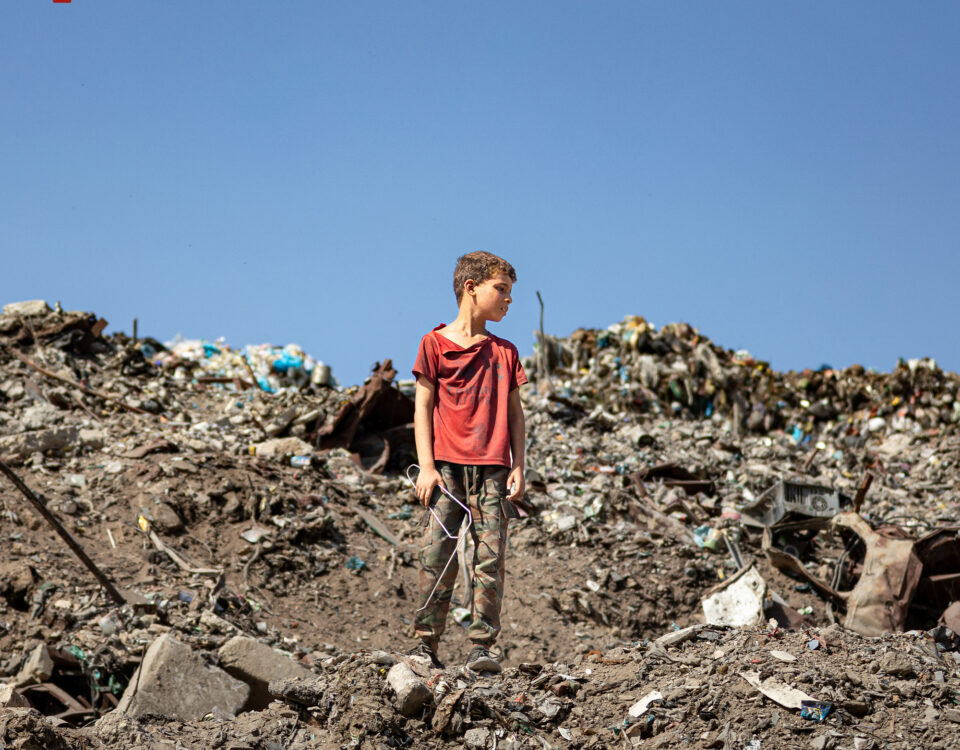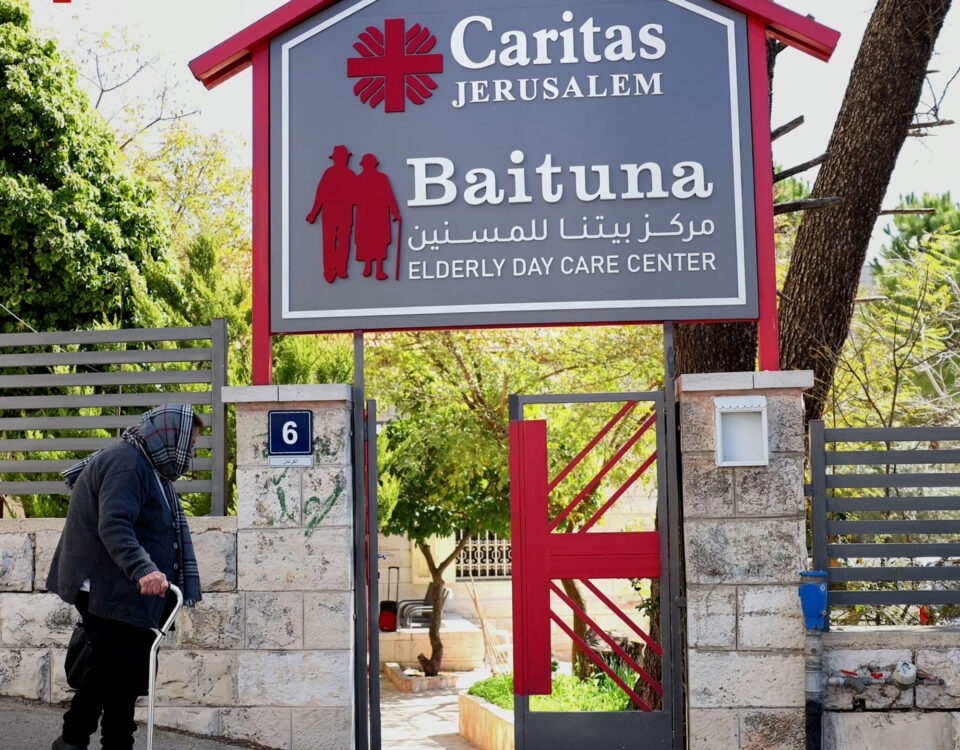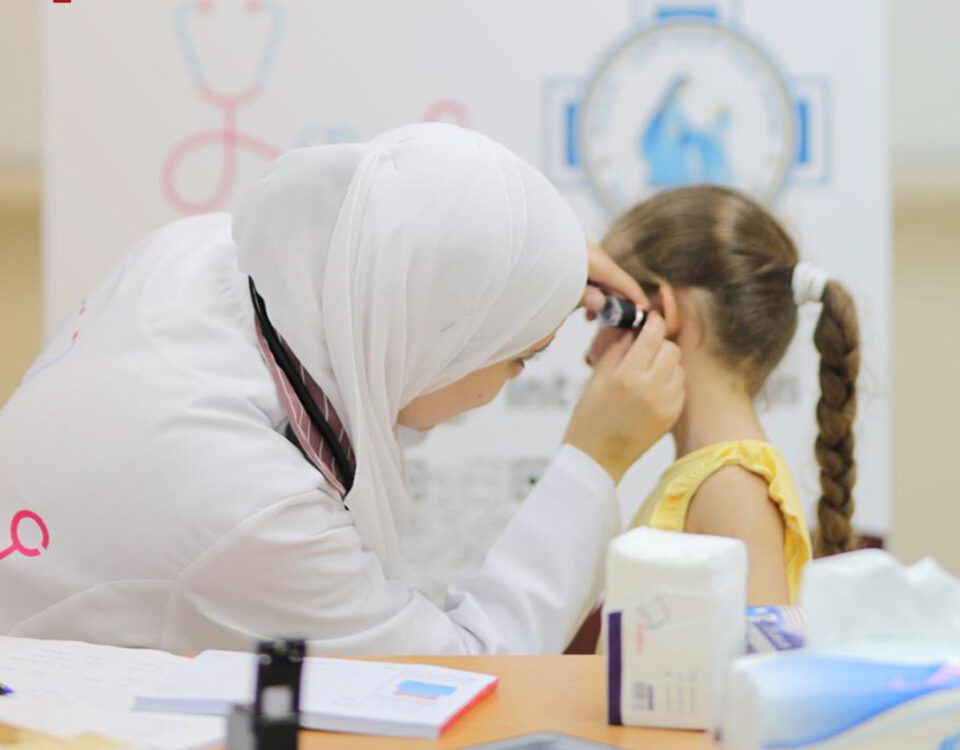
Caritas Jerusalem Joins Bethlehem University’s Annual Career Day: Connecting Graduates with Opportunities
July 10, 2024
Caritas Jerusalem’s Polio Vaccination Effort in Gaza
September 3, 2024Surviving Hepatitis Amidst Conflict: Nathalie Sayegh's Journey at St. Porphyrius Church
Nathalie Sayegh, a data entry officer at Caritas Jerusalem Gaza, recounted her distressing experience while seeking refuge at the St. Porphyrius Church compound in Gaza. Her ordeal began with stomach aches and digestive issues coinciding with the Israeli incursion northward, where the church is located. Due to the closure of hospitals by Israeli forces, Nathalie was unable to receive a proper diagnosis.
"It started when a young girl and a young male adult were diagnosed with Hepatitis," Nathalie explained. "Shortly after, I began experiencing symptoms myself. Despite constant disinfection efforts, the disease seemed to spread inexplicably."
"In order to recover from Hepatitis, we need to consume sweet foods, fruits, and vegetables," she continued. "We have jam and honey, which we sparingly used in our hot beverages. Unfortunately, fresh fruits and vegetables are unavailable here in the north. Those diagnosed are quarantined, though isolation is challenging as we all sleep closely together in one hall."
"When I managed to obtain a basic blood test at the compound, the results showed elevated liver enzymes, leading to an assumption of Hepatitis due to my ongoing digestive issues. However, without access to the specific Hepatitis detection test, the diagnosis was not conclusive," Nathalie lamented.
"At St. Porphyrius Church, we lack doctors, but we are fortunate to have, Mr. Riyad Shaheena dedicated pharmacist from Caritas Jerusalem who attends to medical cases," she noted gratefully.
Regarding recovery efforts, Nathalie emphasized the necessity of sweet foods and the scarcity of essential items like fruits and vegetables, which are either unavailable or prohibitively expensive due to the ongoing conflict.
"Watermelon, crucial for recovery, is nonexistent here," Nathalie pointed out. "Even water is difficult to consume due to its unpleasant taste, leaving me nauseous. Canned foods, which are our main sustenance, exacerbate my discomfort and hinder healing."
During the incursion, basic amenities such as bread were scarce, forcing residents to bake their own in limited quantities. The situation was exacerbated by the oppressive summer heat and inadequate ventilation, with only intermittent access to battery-operated fans.
"The psychological toll is immense," Nathalie revealed. "People react with fear and aversion upon learning of Hepatitis cases, making social interaction challenging. Maintaining resilience is crucial for mental and physical recovery."
Nathalie's quarantine ended successfully, and she has since returned to work at the Latin Church compound, hopeful for improved conditions despite the ongoing challenges in Gaza.
She is thankful for her work, health and all the support she has received from Caritas Jerusalem’s colleague and pharmacist who is constantly checking on her health and the rest of the IDPS who are residing at the church compound. It is a privilege that many others in Gaza are lacking at the moment.
